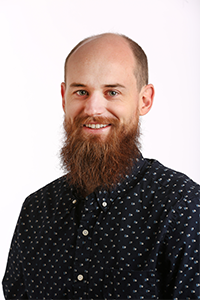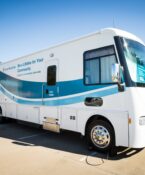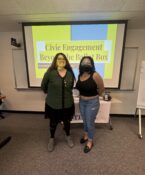HSC experts explain Alzheimer’s disease
 Caregivers, grappling with medical questions about Alzheimer’s disease, may be filled with fear and confusion.
Caregivers, grappling with medical questions about Alzheimer’s disease, may be filled with fear and confusion.
Often, they turn to friends, social media or the internet for answers. Geriatric experts at The University of North Texas Health Science Center at Fort Worth want to bridge that information gap.
Dr. Tyson Garfield, Geriatrician and Assistant Professor, tackles those questions at HSC Health’s Geriatric Clinic and in his blog, “themedicinecheck.”
It helps to understand the terms.
“Dementia is a broad term that is defined as a loss of thinking skills and memory that decreases a person’s ability to do things they are normally able to do,” Dr. Garfield explained. “It is caused by damage to brain cells that makes it difficult for the brain cells to talk with each other which ultimately leads to the loss of a person’s ability to complete day-to-day tasks.”
Dr. Garfield said Alzheimer’s disease is often thought to be the same thing as dementia, but it is actually the most common type of dementia.
“In fact, Alzheimer’s disease causes up to 80% of cases!” he said.
Unfortunately, Alzheimer’s disease is progressive and fatal, Dr. Garfield said, adding: “There is no known cure at this time, but there are some treatments aimed at slowing it down.”
Early detection can help minimize the effects and improve quality of life as it progresses, he said.
First-of-its-kind research is underway at the HSC to develop new treatments to help detect it early and stop its progression before it’s too late.
But detecting Alzheimer’s disease early is challenging, because often, a person is unable to recognize the symptoms of dementia in themselves, Dr. Garfield said.
Families and caregivers should become familiar with some early warning signs, especially those noted by the Alzheimer’s Association:
- Memory loss
- Trouble solving problems
- Struggle to complete familiar tasks
- Losing track of time and confusion about places
- Vision or balance problems
- Problems following a conversation
- Losing items, trouble retracing one’s steps
- A change in judgement or decision-making
- Withdrawing from social circles, activities
- Personality changes
![Uyen Sa Nguyen Scaled[58]](https://www.unthsc.edu/newsroom/wp-content/uploads/sites/16/Uyen-Sa-Nguyen-scaled58-145x175.jpg)




Social media